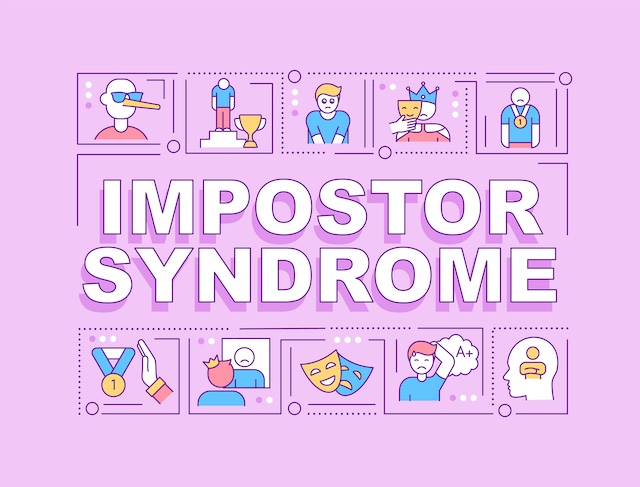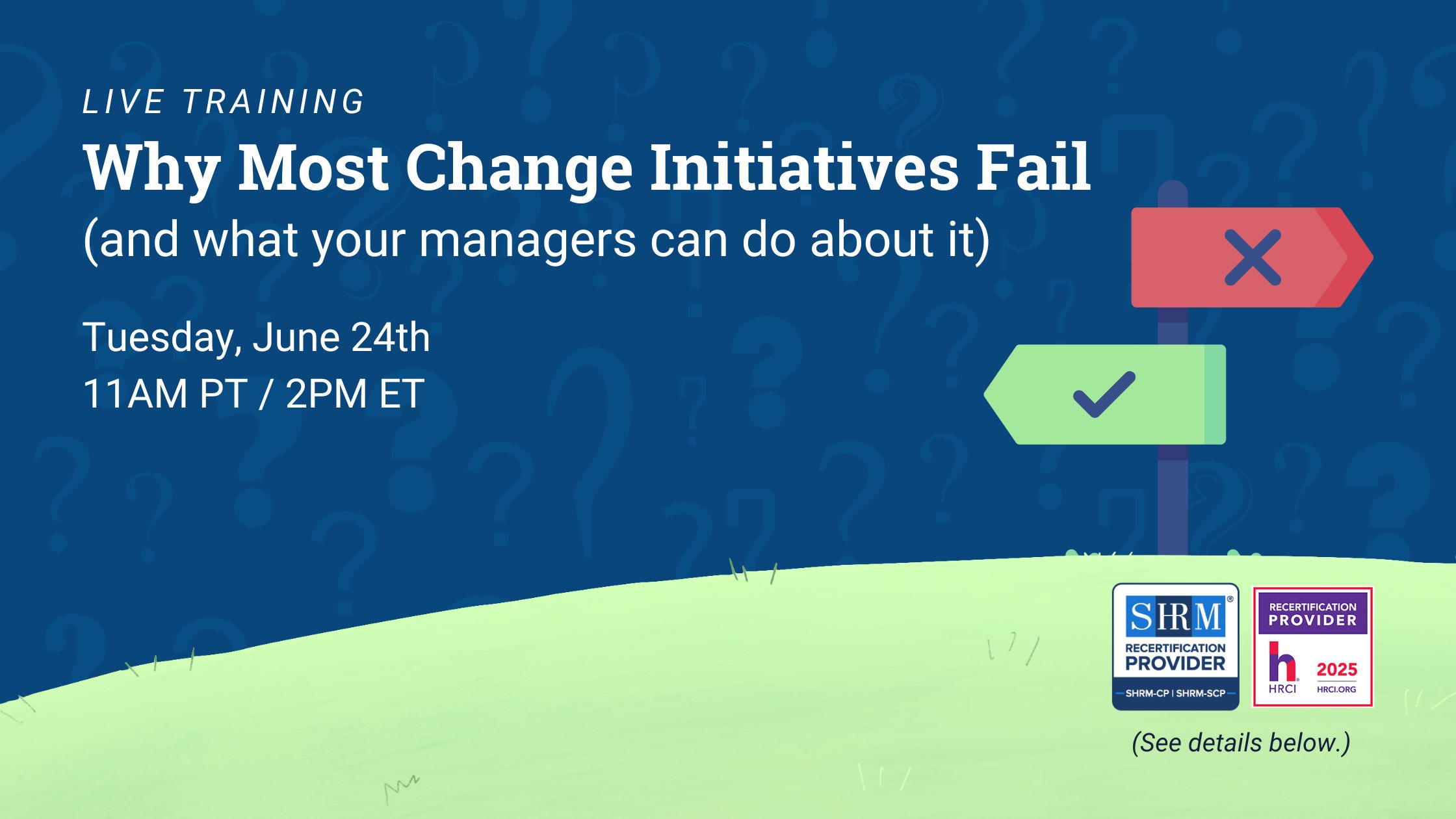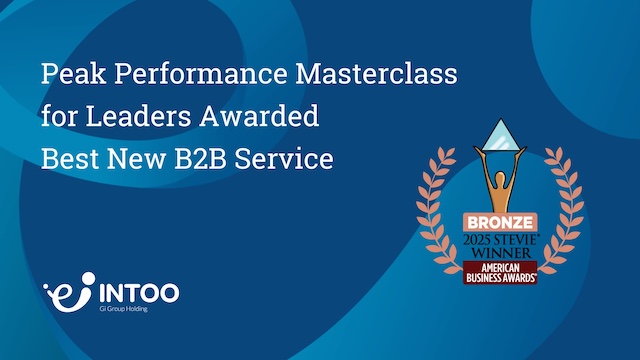Imposter syndrome, a pervasive psychological phenomenon, is more prevalent than you might think. According to an article published in the International Journal of Behavioral Science, imposter syndrome affects nearly 70% of people at some point in their lives. This self-doubt can significantly impact your workforce’s productivity and overall well-being. Imagine a scenario where your employee, despite securing a major project and receiving accolades from colleagues, secretly harbors the belief that they are somehow unworthy of these accomplishments.
Employees struggling with imposter syndrome often internalize a fear of being exposed as frauds despite their competence. This constant self-doubt can lead to a pattern of downplaying their achievements, attributing success to external factors rather than their abilities. This ingrained belief in inadequacy can hinder professional growth, limit leadership aspirations, and increase workplace stress and burnout.
Help your employees take charge of their careers. Download these tips to make career development conversations more meaningful.
How Can Imposter Syndrome Impact Employees’ Performance in the Workplace?
Imposter syndrome, though often concealed behind a facade of professional success, can significantly impact an employee’s performance in the workplace. The pervasive self-doubt and fear of being unmasked as a fraud can create a range of challenges that stifle career progression and overall job satisfaction.
One major consequence of imposter syndrome is heightened stress. Constantly feeling as though one is on the verge of being exposed can lead to chronic stress, negatively affecting both mental and physical well-being. This stress can manifest as anxiety, sleep disturbances, and other adverse health outcomes, ultimately compromising an individual’s ability to perform optimally at work.
Another detrimental effect of imposter syndrome is reduced confidence. When employees constantly question their abilities and doubt their competencies, taking the initiative, speaking up in meetings, or advocating for themselves becomes difficult. This lack of self-assurance can make them appear less assertive and impactful, affecting their overall contributions and inhibiting their ability to make a significant impact.
Moreover, individuals grappling with imposter syndrome often also have a fear of failure. This fear can feel paralyzing, and prevent them from taking on new challenges or pursuing opportunities that could contribute to their professional growth.
Another common consequence of imposter syndrome is difficulty with acknowledging and celebrating achievements. Even when successful, individuals with this experience downplay their accomplishments, attributing them to external factors like luck or circumstance. This lack of self-recognition can lead to a perpetual cycle of feeling unfulfilled and unsatisfied despite external validation.

10 Ways to Overcome Imposter Syndrome at Work
Overcoming imposter syndrome at work requires a conscious effort to challenge negative thoughts, focus on one’s strengths, and develop a growth mindset. Here are ten strategies to help employees overcome imposter syndrome and achieve their professional goals:
1. Acknowledge and validate imposter syndrome
Openly acknowledging the realities of imposter syndrome signals to employees that feelings of self-doubt, even among top performers, are typical and expected. No one is immune. Extending emotional validation when an employee expresses anxiety about being exposed as inadequate or fraudulent builds trust. Leaders should avoid denying or debating their inner experiences. Instead, offer empathy and reassurance and praise past accomplishments. This compassionate response fosters relationships where team members know they can confide in struggles without condemnation.
2. Foster a culture of constructive feedback
Nurture a work environment where feedback is viewed as an opportunity for growth rather than a personal attack. Encourage constructive feedback sessions that focus on highlighting strengths and providing actionable guidance for improvement. This approach helps employees recognize their accomplishments and gain valuable insights into areas where they can develop further. By fostering a culture of open and constructive feedback, employers can empower employees to address their weaknesses and continuously improve their skills.
3. Recognize perfectionism
Confront and counter perfectionistic tendencies within the workplace by promoting a healthier perspective on mistakes. Encourage viewing errors as opportunities for learning and growth. Employers play a crucial role in alleviating the undue pressure often associated with imposter syndrome by fostering an environment that acknowledges imperfections as part of the continuous learning process. By addressing perfectionism, organizations contribute to a workplace culture that values progress over perfection, actively combating the self-doubt and unrealistic expectations that can exacerbate imposter syndrome among employees.
4. Encourage mentorship and networking
Foster a culture of mentorship and networking within your organization. Establish formal mentorship programs and encourage informal connections between employees of different levels and backgrounds. These relationships can provide valuable support, guidance, and inspiration to individuals experiencing imposter syndrome. Mentors can offer insights into navigating workplace dynamics, overcoming challenges, and developing professional skills.
5. Set realistic goals
Work collaboratively with employees to set realistic and attainable goals, aligning them with individual skills and experiences. Breaking down larger objectives into manageable tasks facilitates goal attainment and alleviates the overwhelming feelings often linked to imposter syndrome. This approach empowers employees by providing a clear roadmap for success, reinforcing a sense of competence, and mitigating the self-doubt accompanying larger, seemingly insurmountable goals.
6. Celebrate achievements and accomplishments
Consistently celebrating employees’ achievements, irrespective of size, is pivotal for mitigating imposter syndrome. Regular public acknowledgment of contributions reinforces their significance within the organization, highlighting individual strengths and expertise. This intentional recognition fosters a positive work environment and actively combats self-doubt, contributing to heightened self-esteem. By creating a culture that emphasizes achievements, you play a crucial role in shaping a resilient and empowered workforce where employees feel valued and confident in their abilities, ultimately contributing to the organization’s overall success.
7. Provide learning opportunities
Invest in continuous learning and development opportunities for your employees. Offer skill development programs, workshops, and training sessions that add to their strengths and bolster their confidence. This commitment to ongoing learning empowers employees to expand their knowledge and expertise, reducing feelings of inadequacy and fostering a sense of competence. By providing employees with the tools and resources to grow continuously, you can create a culture where a passion for learning and personal development replaces self-doubt.
8. Promote self-compassion
Imposter syndrome often stems from a harsh inner critic that relentlessly scrutinizes every mistake and inadequacy. To combat this:
- Encourage a culture of self-compassion within the workplace.
- Remind employees that making mistakes is a natural learning process and that growth often arises from stumbles and setbacks.
- Foster an environment where employees are encouraged to be kind to themselves, celebrating their achievements and learning from their missteps without dwelling on failures. This shift in mindset can significantly reduce the negative impact of imposter syndrome and empower employees to embrace their imperfections as stepping stones toward growth and success.
9. Lead by example
Openly sharing your own experiences with imposter syndrome can have a deep impact on your company’s culture. By acknowledging your own vulnerabilities and challenges, you create a space where employees feel safe to do the same. This vulnerability fosters a sense of trust and openness, encouraging open communication and collaboration. When employees see their leaders embrace their imperfections and celebrate their successes, it normalizes the experience of imposter syndrome and encourages them to do the same. This shared vulnerability can lead to a collective effort to overcome imposter syndrome and create a work environment that’s more supportive for everyone.
10. Offer information about mental health benefits
If imposter syndrome has gone beyond self-doubt and is causing significant distress, impacting an employee’s daily life and mental well-being, make them aware of the help available to them. Employee Assistance Plans (EAPs) and other benefits often offer a form of counseling that can be advantageous in such situations. A mental health professional can provide expert guidance and support to address the underlying causes of the employee’s imposter syndrome and develop effective coping mechanisms. They can help one identify and dismantle negative thought patterns, cultivate self-compassion, and build stronger self-belief. Impart to the employee that seeking help is a courageous step towards reclaiming confidence and achieving full potential.
Looking to build and advance your company’s culture? Download this guide for practical tips.
Conclusion
Imposter syndrome creates an internal tug-of-war, where outward success clashes with an internal narrative of unworthiness. The phenomenon transcends mere self-critique; it becomes a formidable barrier to recognizing one’s true potential and embracing opportunities for growth. As an employer, understanding and addressing imposter syndrome is crucial for fostering a thriving and supportive work environment. By implementing the strategies outlined in this article, you can create a culture where employees feel empowered, valued, and encouraged to reach their full potential.











